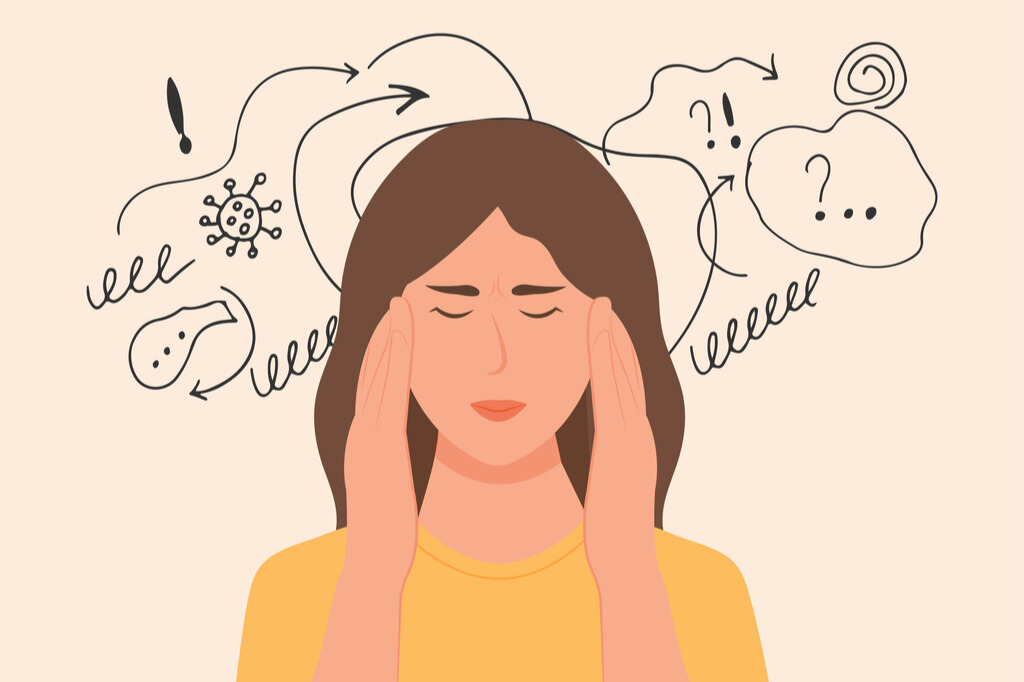ADHD, Perimenopause, and Menopause: Understanding How Hormones Impact ADHD

You’re a woman in your 40s feeling overwhelmed and distracted. Your brain feels like the enemy. You might be impacted by how hormones worsen ADHD symptoms!
When ADHD Meets Menopause: A Perfect Storm
Imagine going through puberty all over again. Your emotions are unpredictable, logic feels elusive, you're noticing changes in your body that are confusing and frustrating, and even hair starts showing up in unexpected places. This is what perimenopause and menopause can feel like. For women with ADHD, this time can be especially overwhelming. Estrogen and progesterone, key hormones that influence many stages of a woman’s life, also play a significant role in regulating ADHD symptoms and how well ADHD medications work. As these hormone levels fluctuate during perimenopause, many women find their previously well-managed ADHD symptoms becoming harder to control (Organ, K., 2025, para. 2).
During this transition, women may struggle with a double burden: the resurfacing or intensifying of ADHD symptoms due to hormonal shifts, and the physical and emotional challenges that naturally come with perimenopause. Together, these changes can make an already difficult period even more complex and draining.
What can be done to help with these issues? You deserve to be heard, seen and connected to support that can help.
How CBT can help
Cognitive Behavioural Therapy (CBT) can be a powerful tool in alleviating symptoms associated with perimenopause and menopause. For example, hormonal changes during perimenopause can trigger hot flashes, which may lead to sleep disturbances, contributing to increased anxiety, low mood, and emotional sensitivity. These physical and emotional symptoms can also impair executive functions (our brain’s ability to plan, focus, remember, and regulate behaviour).
For women with ADHD, these challenges can become even more pronounced. Hormonal fluctuations can intensify ADHD symptoms, making emotional regulation and executive functioning more difficult to manage. CBT offers targeted strategies to address these disruptions, including planning and prioritizing tasks, building coping skills for emotional overwhelm, and engineering supportive environments that reduce cognitive overload.
A particularly effective CBT strategy during this time is externalizing (the practice of relocating tasks, thoughts, and reminders from your mind to your physical environment). This might involve using visual aids like calendars, sticky notes, checklists, or digital reminders. Since working memory and focus are often compromised during perimenopause, externalizing can provide a critical support system. By reducing mental clutter and reliance on memory, these tools help restore a sense of structure, lower stress, and enhance day-to-day functioning, making it easier to manage both ADHD symptoms and the hormonal changes of this transitional phase.
How Medical Providers can help
Doctors and Nurse Practitioners (NPs) play a key role in helping women manage the physical and cognitive changes of perimenopause and menopause. They can treat common symptoms like hot flashes, sleep issues, and mood changes through medication or alternative therapies.
For women with ADHD, hormonal shifts can affect how stimulant medications used to treat ADHD are processed and how well they work. Estrogen influences neurotransmitters like dopamine, which are central to ADHD treatment. As hormone levels fluctuate, medication effectiveness may decrease or side effects may increase.
Medical providers can help by adjusting dosages, modifying timing, or exploring alternative medications. Regular check-ins and open communication allow for tailored treatment plans that support both hormonal and cognitive health during this transitional time.
Conclusion
Navigating the dual challenges of ADHD and perimenopause can feel like an uphill battle, but you are not alone, and there is help. By understanding how hormonal changes affect your brain and behaviour, you can begin to reclaim control and clarity. Support from both medical providers and mental health professionals can make a meaningful difference.
Whether it’s adjusting medication or learning CBT strategies to manage emotional and cognitive shifts, there are tools and options tailored to support you through this transition. Reach out, get curious about your symptoms, and know that healing and balance are within reach.
Join us today at Cognito and get access to professionals who can help you develop a personalized care plan. You deserve compassion, understanding, and care.
Written by: Michelle Young, RN; Nicole Brown, CBT Co-lead.
Sources:
Organ, K. (2025, April 9). ADHD during the perimenopause & Menopause. The Menopause Specialists. https://www.menopausespecialists.com/post/adhd-during-the-perimenopause-menopause
Mayo Clinic Staff. (2023, May 25). Perimenopause Symptoms and Causes. The Mayo Clinic. https://www.mayoclinic.org/diseases-conditions/perimenopause/symptoms-causes/syc-20354666










